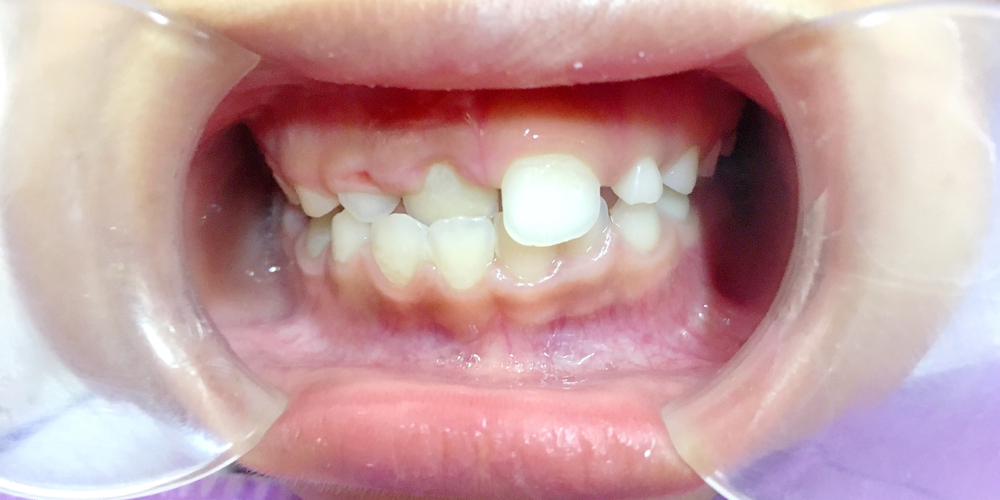
A crossbite is an occlusal irregularity that can impact on a single tooth or a number of teeth. It occurs when a tooth is closer to either the cheek or the tongue than the corresponding tooth in the upper or lower set of teeth. There are now a range of orthodontic treatments available to correct this problem, including Interceptive braces which can be used to correct crossbites before they are fully developed.
What causes a crossbite?
A crossbite is usually inherited but it may also be the result of abnormal jaw development. Crossbites can also be brought about by thumb-sucking and aggressive tongue thrusting, so it is a good idea to stop these acts without delay. In some cases, a crossbite can also result from missing or crooked teeth. This is a condition that will not treat itself of its own accord, so it is necessary to seek treatment and advice from a certified dentist if you desire straighter teeth.
What are the effects of a crossbite?
A crossbite prevents the teeth from aligning properly, which in turn affects the aesthetics of the smile. This can have a negative effect on an individual’s self-esteem, so that they feel self-conscious about smiling in public. Crossbites do not correct themselves and the earlier they are treated the better. If the crossbite is not treated it can contribute to abnormal growth of the jaw, where one jaw may grow larger than the other. If this is the case, the jaws will be unbalanced and this can influence the ability to chew or swallow.
How is the condition diagnosed?
You will initially need to attend a consultation with a certified dentist to have your teeth checked. This will often involve a physical examination of your teeth by the dentist, followed by an x-ray, if necessary, to ascertain the extent of your crossbite. The x-ray is completely safe and will give the dentist a more detailed image of your teeth.
What treatments can be used for a crossbite?
It is advisable to treat a crossbite as early as possible. In some cases, an operation may be required to expand the jawbones, which would be done under the guidance of a qualified and experienced oral surgeon. Depending on your gender, oral surgery of this kind is normally carried out at age nineteen for males and sixteen for females.
There are many types of orthodontic treatments that can be used to correct crossbites, including Damon braces and Fixed braces. In some cases, a crossbite will be fixed through a combination of oral surgery and orthodontic treatment. This would need to be discussed with your dentist to find your most suitable treatment method.

